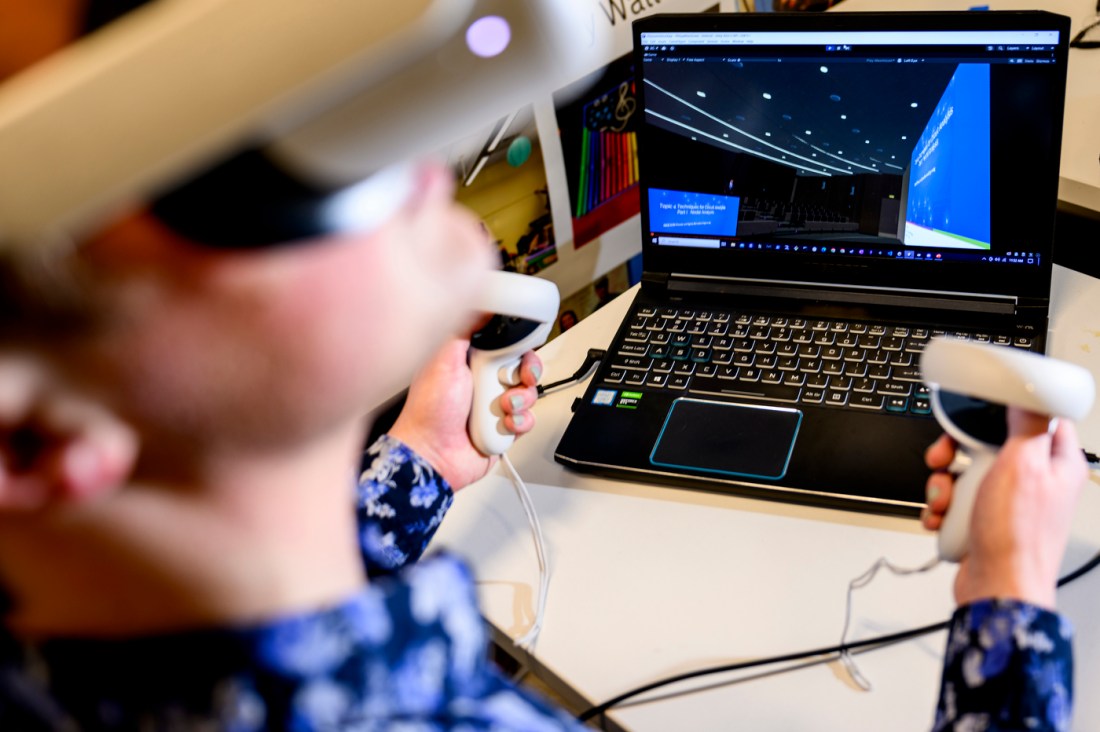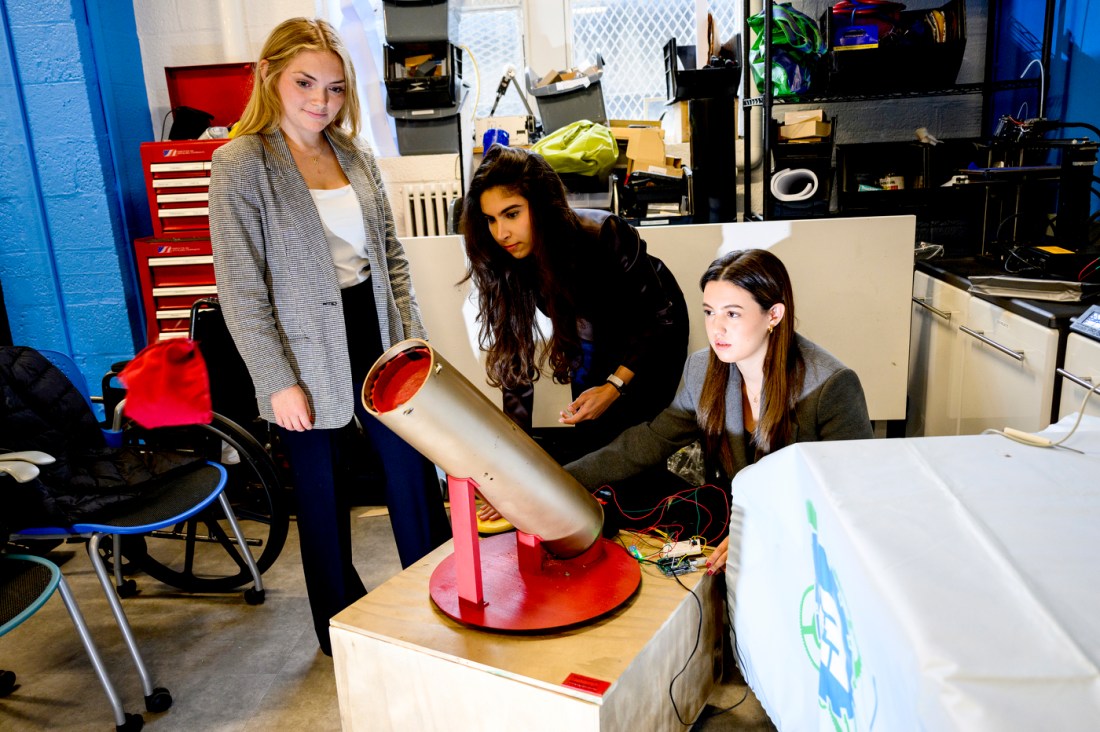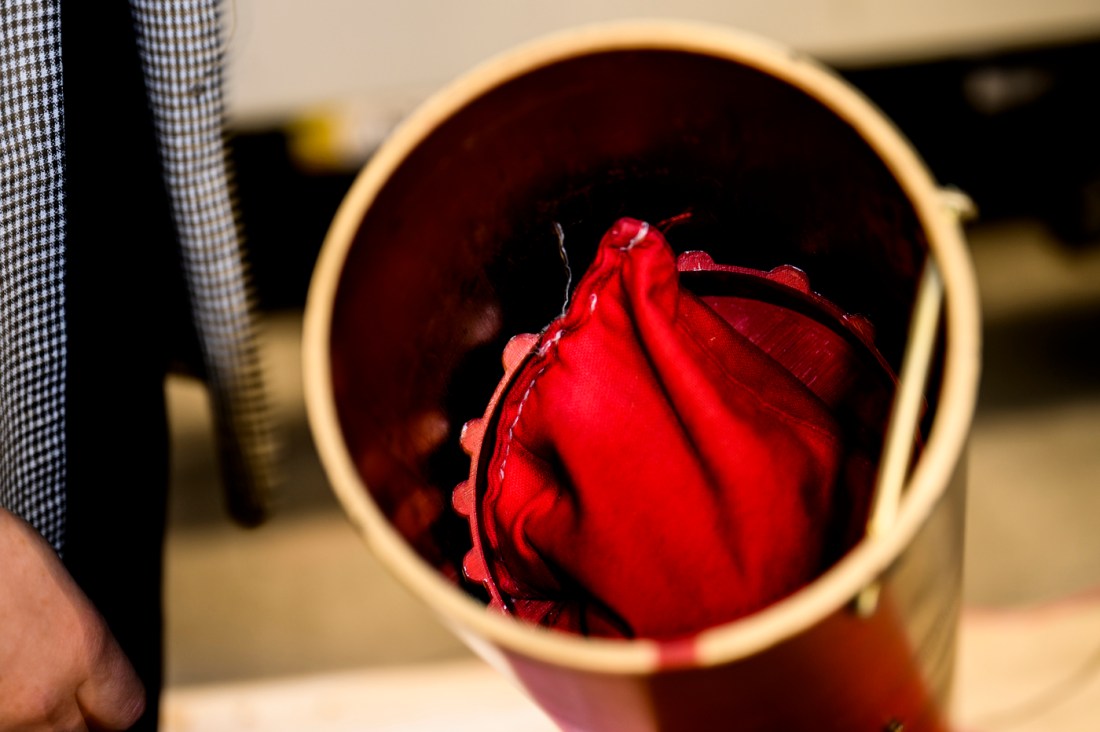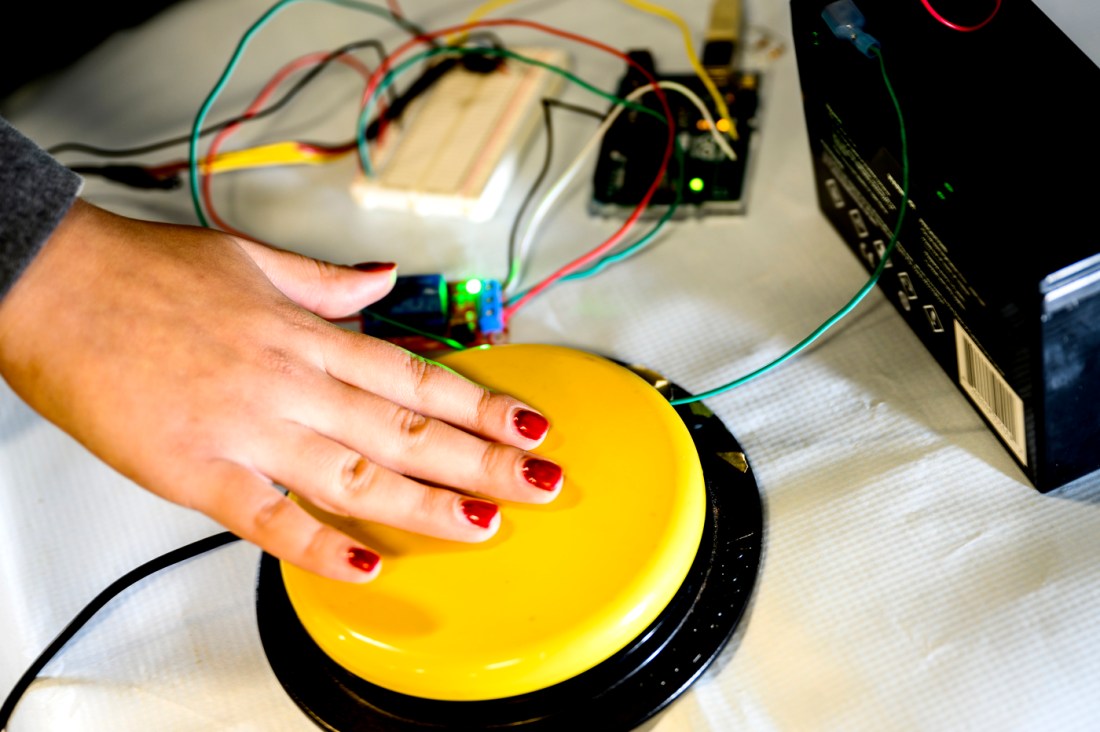Enabling Engineering Makes Play Accessible
Paired with external clients, students in Northeastern University’s Enabling Engineering class developed apps and devices this semester to empower individuals with disabilities to participate in activities they enjoy. Examples include a virtual reality app that helps people practice their public speaking skills, and an accessible, switch-activated beanbag launcher for cornhole.
This article originally appeared on Northeastern Global News. It was published by Cyrus Moulton. Main photo: Students work on Enabling Engineering projects in Ell Hall Northeastern’s Boston campus. Photo by Matthew Modoono/Northeastern University
From cornhole beanbag launcher to public speaking app, this engineering class enables everyone to play games
Public speaking is something many of us dread, and for those who stutter it can be extra nerve-racking.
The backyard game cornhole, on the other hand, is a joy. But many people with physical disabilities are unable to play.
In both cases, Northeastern University’s Enabling Engineering class is here to help.
“I’m a big fan of devices that can help people,” says Aidan Capaldi as he and fellow students demonstrated a virtual reality app that helps people practice their public speaking skills.
Kate Bevec, whose team developed an accessible, switch-activated beanbag launcher for cornhole, concurred.
“There are lots of options for helping people with disabilities with everyday tasks, which is great, but they have limited options for playing games,” Bevec says.
The Enabling Engineering class applies engineering to enable and empower individuals with disabilities. In the class, teams of students are paired with clients who have requested everything from a camera mount for a filmmaker who uses a wheelchair to a bow and arrow designed for people with visual impairments.
“Our class allows our students to truly immerse themselves in experiential learning,” says Priyanka Jalan, faculty and program manager of the class. “This semester students built low-cost devices to make activities more accessible to individuals with disabilities, areas of concern that are often overlooked.”
Two teams presented their semester projects on Wednesday morning.
The virtual reality public-speaking simulator app arose from discussions with Caren McDonough, speech language pathology clinic director of the Speech Language Hearing Center at Northeastern.
The team’s major objective was to provide a virtual reality simulation app where clients — many of whom stutter — could practice public speaking.
“My goal for incorporating virtual reality into therapy sessions is to allow those who stutter to practice their strategies, or just practice public speaking during realistic scenarios without having to leave the therapy room, as often times they are not ready to practice in other settings,” McDonough said.
To make it as realistic as possible, the team developed an app that puts the user in a simulated lecture hall with several audience members. The app allows the user to access a slide deck as they practice their speech, the camera follows the user’s line of sight as they move around the room, and the user even experiences distractions like sneezes and coughing in the audience.
“It would really help people ease their nerves as if in a real setting where this would occur,” team member Steven Scangas says.
 |  |
 |  |
Students work on Enabling Engineering projects in Ell Hall Northeastern’s Boston campus. Photos by Matthew Modoono/Northeastern University
Read full story at Northeastern Global News